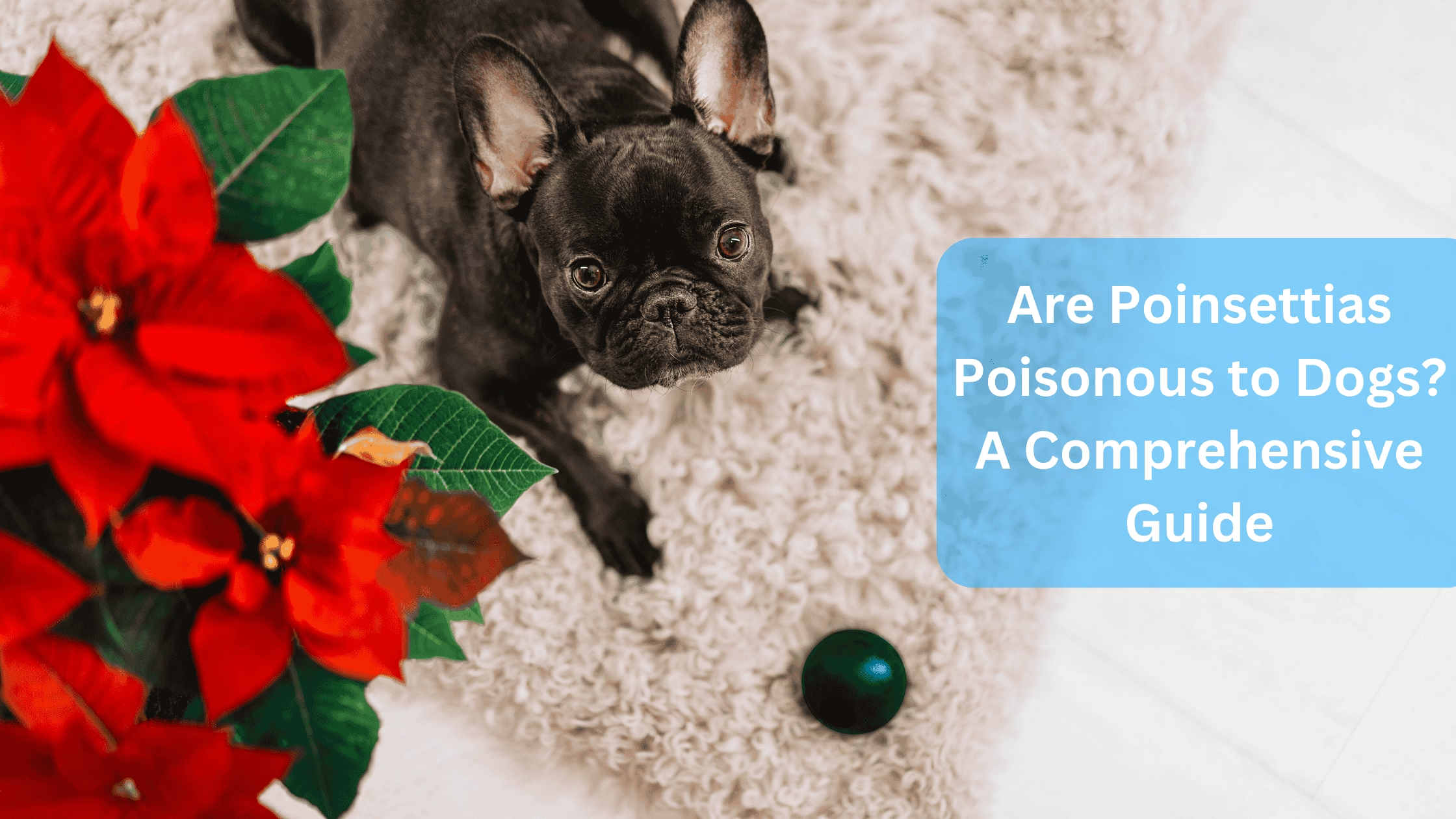Are Poinsettias Poisonous to Dogs? Poinsettias, with their vibrant red and green foliage, are a staple of holiday decorations. However, many dog owners often wonder if these festive plants are safe for their furry friends.
This guide will explore the toxicity of poinsettias to dogs, including symptoms, treatment options, and preventative measures to ensure the safety of your pets during the holiday season.
Understanding Poinsettias
Poinsettias (scientific name: Euphorbia pulcherrima) are native to Central America and have become synonymous with Christmas celebrations worldwide. Their bright colors and unique shape make them popular for holiday decor. However, they contain a milky white sap that can be irritating to pets.
Toxic Components of Poinsettias
The sap of poinsettias contains two primary compounds that contribute to their mild toxicity:
- Diterpenoid euphorbol esters: These compounds can cause irritation when ingested or when they come into contact with the skin.
- Saponin-like detergents: These substances can also irritate the digestive tract and skin.
While these compounds are not lethal, they can lead to discomfort and mild health issues in dogs.
Are Poinsettias Poisonous to Dogs?
The short answer is yes, poinsettias are mildly toxic to dogs. However, the level of toxicity is often exaggerated.
According to various veterinary sources, including the American Kennel Club and Pet Poison Helpline, the ingestion of poinsettia leaves or sap can lead to mild symptoms but is rarely life-threatening.
Symptoms of Poinsettia Toxicity in Dogs
If a dog ingests poinsettia or comes into contact with its sap, it may exhibit several symptoms:
- Vomiting: This is one of the most common reactions.
- Drooling: Increased salivation can occur due to mouth irritation.
- Diarrhea: Some dogs may experience gastrointestinal upset.
- Skin Irritation: Contact with the sap can cause redness and swelling.
- Eye Irritation: If the sap gets into a dog’s eyes, it may cause redness and discomfort.
These symptoms are typically mild and self-limiting. Most dogs recover without medical intervention unless they show severe symptoms.
How Much of a Poinsettia is Toxic to Dogs?
All parts of the poinsettia plant contain the irritating sap, meaning that any amount ingested can potentially cause symptoms. However, larger quantities may lead to more pronounced effects. It is essential for pet owners to monitor their dogs closely if they suspect ingestion.
What Should You Do If Your Dog Eats Poinsettia?
If you suspect that your dog has ingested poinsettia leaves or sap, here’s what you should do:
- Stay Calm: Most cases of poinsettia ingestion result in mild symptoms that resolve on their own.
- Monitor Your Dog: Keep an eye on your pet for any signs of distress or unusual behavior.
- Contact Your Veterinarian: If your dog shows persistent vomiting, diarrhea, or any severe symptoms, reach out to your vet for advice. They may recommend bringing your dog in for an examination.
- Provide Hydration: Ensure your dog has access to fresh water to stay hydrated, especially if they are experiencing vomiting or diarrhea.
- Wash Affected Areas: If any sap has come into contact with your dog’s skin or fur, wash it off with soap and water to prevent irritation.
Preventing Poinsettia Poisoning in Dogs
To keep your dog safe during the holiday season:
- Avoid Bringing Poinsettias Home: If you know your dog has a tendency to chew on plants, consider skipping poinsettias altogether.
- Keep Plants Out of Reach: If you choose to have poinsettias in your home, place them in areas that are inaccessible to your dog.
- Educate Family Members: Make sure everyone in your household understands the potential risks associated with poinsettias around pets.
Other Holiday Plants to Be Aware Of
While poinsettias are often highlighted during the holidays, several other common plants can pose risks to dogs:
- Holly: Can cause gastrointestinal upset and potentially more severe reactions.
- Mistletoe: Known for its toxic properties; ingestion can lead to serious health issues.
- Christmas Cactus: Generally considered safe but can cause mild stomach upset if ingested in large quantities.
- Amaryllis: Highly toxic; ingestion can lead to severe vomiting and diarrhea.
Also Read: Is Nature’s Recipe Good for Dogs? A Comprehensive Guide
Also Read: Why Do Dogs Howl at Night? A Comprehensive Guide
Conclusion
Poinsettias are indeed mildly toxic to dogs due to their irritating sap. While they can cause discomfort and mild symptoms such as vomiting and diarrhea, serious health issues are rare. By taking precautions—such as keeping these plants out of reach and monitoring for any signs of distress—dog owners can enjoy the beauty of poinsettias without compromising their pets’ safety.
As always, if you have concerns about your dog’s health or if they exhibit severe symptoms after exposure to any plant, consult your veterinarian promptly. Keeping our furry friends safe during the festive season should always be a top priority!
Sources:
- https://en.wikipedia.org/wiki/Poinsettia#:~:text=Similarly%2C%20a%20cat%20or%20dog’s,itchiness%2C%20redness%2C%20or%20swelling.
- https://www.petpoisonhelpline.com/poison/poinsettia/







